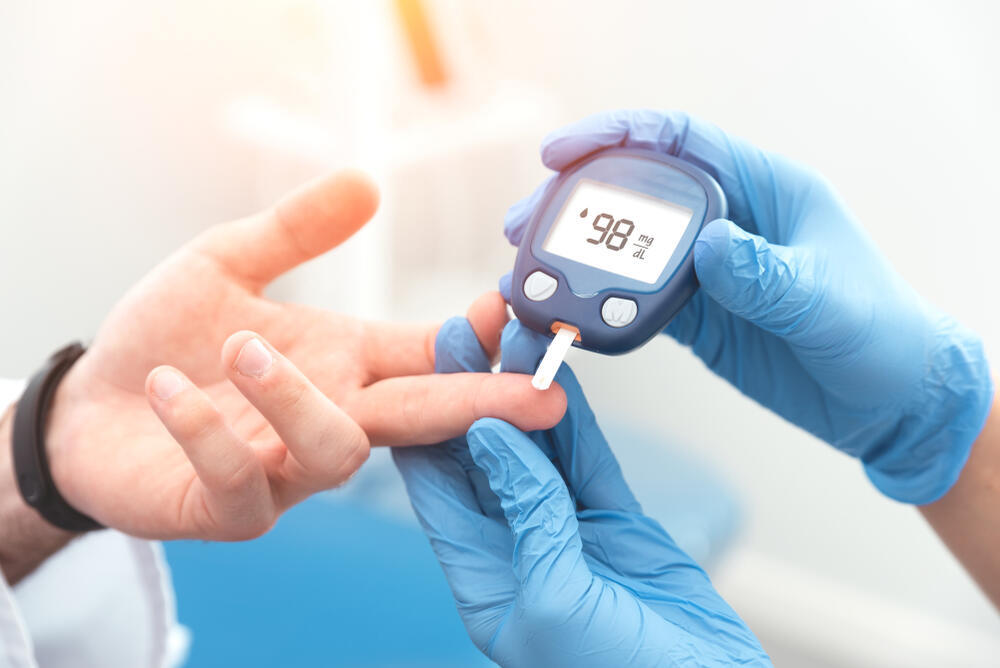Getting your Trinity Audio player ready...
Diabetes, a disease increasingly prevalent worldwide, affects one in every 12 Israelis. Pre-diabetes, even more common, impacts about half of Americans and over a quarter of Israeli adults, often without their awareness.
Undoubtedly, dietary habits and lifestyles significantly contribute to the development of diabetes and pre-diabetes, yet ultra-processed foods seem to accelerate this path. Recent studies further cement the link between consuming these foods and the onset of diabetes and its myriad of complications, highlighting the hidden health hazards lurking in our kitchens or just a delivery click away.
How do these mechanisms work against us, why do they particularly harm those with diabetes, and what can be done to address the issue?
A newly published study in The American Journal of Clinical Nutrition explored the relationship between ultra-processed food consumption and diabetes complications among 5,685 Britons with Type 2 diabetes. Participants completed dietary questionnaires and provided medical data over an average of twelve and a half years, and the findings are unsettling. It was found that consuming ultra-processed food significantly exacerbates diabetes complications, affecting the kidneys, retina, and peripheral nervous system. Previous studies have shown that diabetics consuming these foods experience higher rates of heart attacks and mortality. As for sugary drinks, past research indicates that the risk of developing pre-diabetes and diabetes doubles among consumers.
Here's how the ultra-processed food mechanism works:
Ultra-processed foods include industrial food products with extensive ingredient lists, often packed with sugar, fat, salt, and industrially processed components. These ingredients include substances that previous generations were not exposed to, such as flavorings, colorings, emulsifiers, preservatives, and substances designed to replace expensive ingredients, making food cheaper, more enticing, and longer-lasting.
Almost every food featured in advertisements or sold in convenience stores, and over half of supermarket food products, are ultra-processed. This includes not just sweets, snacks, and cookies, but also fast or ready-made food, most drinks, industrial bread, processed meat products (any meat product that is not fresh, including sausages, hot dogs, pastrami, chicken nuggets, canned meat, and more), breakfast cereals, and baby products.
The link between fast food and diabetes:
For those who have already developed pre-diabetes or diabetes, consuming ultra-processed food is particularly detrimental, and the explanation is straightforward. This food contains many processed carbohydrates that rapidly spike blood glucose levels, challenging the blood glucose balance mechanism, which malfunctions under these conditions. Industrial processing reduces particle size and removes or destroys substances like dietary fibers that, in whole foods, moderate carbohydrate absorption.
When discussing eating habits with patients, it is evident that many consume these foods regularly, often throughout the day, often as a substitute for real food. Among people with diabetes using continuous glucose monitors, one can observe sharp spikes in glucose levels immediately after consuming these foods.
When will the addiction to ultra-processed food be recognized?
Ultra-processed food manufacturers understand that once you start eating their products, it's hard to stop, leading consumers to eat much more than they planned. Advertisements, enticing packaging, low prices, minimal effort required for consumption, textures, and flavors encourage eating larger quantities than real food.
Manufacturers conduct experiments to identify the perfect combination of texture, taste, and appearance that will make testers want to continue eating and consume the largest amount possible—in other words, to identify the most addictive product. As advertisements claim: "You won't be able to stop eating."
In recent months, I have participated, alongside a group of scientists and doctors, in meetings to draft a document for the World Health Organization aimed at recognizing the addiction to ultra-processed food. Research shows that the addiction mechanisms for consuming these foods are similar to those for other substances like alcohol and drugs, with similar symptoms of loss of control and suffering, and significant health damages.
Since in people with diabetes, diet directly affects glucose balance, crucial for avoiding disease complications, the harm from addiction to ultra-processed food is especially significant in this population.
One area yet to be researched is the impact of targeted treatment for addiction to ultra-processed food on diabetes management. The expectation is that improving the handling of these foods will also enhance quality of life and diabetes balance.
A study on this subject is soon to begin at Rambam Health Care Campus, in collaboration with the Diabetes Service at the Institute of Endocrinology, Diabetes, and Metabolism, Dr. Yael Pikel, a psychiatrist specializing in eating disorders, and other researchers. The study, currently recruiting participants, will involve individuals with Type 2 diabetes and food addiction. The hope is that this research will facilitate better understanding of mechanisms and strategies to help tackle this challenge that endangers the health of many.
- Dr. Irit Hochberg is acting director and head of the Diabetes Service in the Institute of Endocrinology, Diabetes & Metabolism at Rambam Health Care Campus



